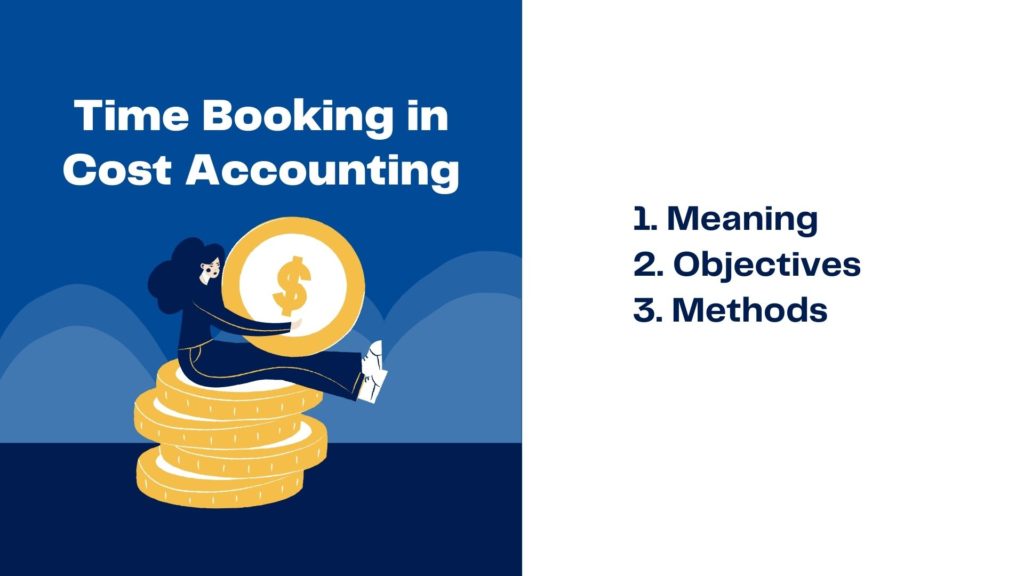Time Booking in Cost Accounting | Free Cost Accounting Articles
Table of Contents
Time Booking in Cost Accounting

Time Booking in Cost Accounting
Time Booking means a record of time spent by the worker on jobs during his/her attendance at the factory department. Recording the working time is commonly known as time booking. It is important to know the actual time spent on the job, or for job or operation or process. It is the process of recording of time actually
spent by the workers for a job or operation. This is useful for the calculation of wages or remuneration payable to the workers.
Objectives of Time Booking
The objectives of time books are stated below:
i) Full Utilization of Work Time:
It ensures that each worker is physically present in the factory and he has spent full-time for the job. It leads to the efficiency of workers.
ii) Ascertainment of Labour Cost:
It facilitates the ascertainment of the labour cost of each job of a cost centre or each unit. Sometimes overheads are absorbed on the basis of labour hour rate. It helps in fixing the labour rate for absorption of overheads.
iii) Computation of Incentives:
Many times incentives are paid to the workers with good productivity, efficiency, and time spent on the job, etc. It helps in the process of calculation of such incentives.
iv) Determination of Wage or Bonus:
It helps in the process of calculating the wage and bonus payable to workers on the basis of the actual time required for completion of the job.
- First in First out Method (FIFO)
- Last in First out Method (LIFO)
- Simple Average Method
- Weighted Average Method
Methods of Time Booking
The method of Time booking are as follows:
1) Daily Time Sheet:
In this method, Daily Time Sheet or Daily Record Card is provided to each worker for recording details of time spent by him on work during the day. It must be agreed with the clock card. It is suitable for small works. It is easy to understand and operate. The foremen can know the worker’s performance from this sheet. It needs less
paperwork as compared to other methods.
It is suitable for the workers who have to work in different departments. It requires a lot of paperwork when workers are required to work on the same or different jobs on several days. The time is recorded by the workers in the daily timesheet. It is not a reliable method.
2) Weekly Time Sheet:
In this method, the weekly timesheet is supplied to each worker and they have to write the details of work and time spent on Job for a week period. This card is suitable where very limited work or jobs are to be completed by the workers in a week. It enables the foreman to know the weekly performance of the worker. It is a convenient method where small or limited jobs are to be completed which requires very less paperwork.
It is an inaccurate method because sheet cards can be prepared from memory. It is a reliable method.
3) Job Cards:
A job or a job ticket is a card that shows details of time spent by a worker or a group of workers for each operation. It is given to a worker which gives the details of the job performed. He has to record manually the time (hours) worked by him/her on the job card. In big organizations, the provided job cards are made available which are punched for recording required details.
Normally job card is printed giving detail of the job, order number, and other details. This method enables coordination between the production control and cost department. Preparation of job cards becomes burdensome because separate job cards need to be prepared for the separate jobs. Wrong information record is possible in this type. It is not suitablewhere last minute alterations involves.


